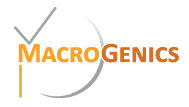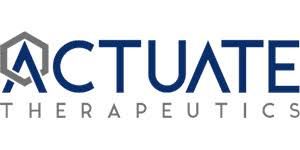Request Demo
Last update 20 Feb 2026
Retifanlimab
Last update 20 Feb 2026
Overview
Basic Info
Drug Type Monoclonal antibody |
Synonyms Retifanlimab (USAN), RETIFANLIMAB-DLWR, INCMGA-00012 + [4] |
Target |
Action inhibitors |
Mechanism PD-1 inhibitors(Programmed cell death protein 1 inhibitors) |
Therapeutic Areas |
Originator Organization |
Active Organization |
Inactive Organization |
License Organization |
Drug Highest PhaseApproved |
First Approval Date United States (22 Mar 2023), |
RegulationAccelerated Approval (United States), Orphan Drug (United States), Orphan Drug (European Union), Orphan Drug (Japan), Orphan Drug (Australia), Priority Review (Australia), Priority Review (United States) |
Login to view timeline
Structure/Sequence
Sequence Code 12981416H

Source: *****
Sequence Code 13030670L

Source: *****
R&D Status
Approved
10 top approved records. to view more data
Login
| Indication | Country/Location | Organization | Date |
|---|---|---|---|
| Anal canal squamous cell carcinoma | United States | 15 May 2025 | |
| Metastatic Merkel Cell Carcinoma | United States | 22 Mar 2023 |
Developing
10 top R&D records. to view more data
Login
| Indication | Highest Phase | Country/Location | Organization | Date |
|---|---|---|---|---|
| squamous cell carcinoma of the anus | NDA/BLA | European Union | 29 Jan 2026 | |
| Endometrial Carcinoma | Phase 3 | China | 20 Sep 2021 | |
| metastatic non-small cell lung cancer | Phase 3 | China | 18 Sep 2020 | |
| metastatic non-small cell lung cancer | Phase 3 | China | 18 Sep 2020 | |
| Metastatic Non-Squamous Non-Small Cell Lung Carcinoma | Phase 3 | United States | 11 Sep 2020 | |
| Metastatic Non-Squamous Non-Small Cell Lung Carcinoma | Phase 3 | China | 11 Sep 2020 | |
| Metastatic Non-Squamous Non-Small Cell Lung Carcinoma | Phase 3 | Brazil | 11 Sep 2020 | |
| Metastatic Non-Squamous Non-Small Cell Lung Carcinoma | Phase 3 | Bulgaria | 11 Sep 2020 | |
| Metastatic Non-Squamous Non-Small Cell Lung Carcinoma | Phase 3 | Czechia | 11 Sep 2020 | |
| Metastatic Non-Squamous Non-Small Cell Lung Carcinoma | Phase 3 | Hungary | 11 Sep 2020 |
Login to view more data
Clinical Result
Clinical Result
Indication
Phase
Evaluation
View All Results
Phase 3 | squamous cell carcinoma of the anus First line | 308 | lrvaoyurvy(yejshskvhi) = ifnhkmizca qftmwejcli (jcofqsejmv ) View more | Positive | 12 Nov 2025 | ||
Placebo + carboplatin-paclitaxel | lrvaoyurvy(yejshskvhi) = ndfqbhdvgb qftmwejcli (jcofqsejmv ) View more | ||||||
Phase 2 | PD-L1+ | 176 | bbplfreisq(picibivuih) = unopwaydmg fikqphujqt (syzalrervi, 3.5 - 9.7) View more | Negative | 17 Oct 2025 | ||
bbplfreisq(picibivuih) = jdpovphwqn fikqphujqt (syzalrervi, 3.7 - 7.6) View more | |||||||
Phase 3 | Non-Small Cell Lung Cancer First line | 583 | Retifanlimab + chemotherapy | iopsmqfqnm(qghwvnsegv) = ntizpzeogw buotjekkpm (xihtjayeex, 16.2 - 21.0) View more | Positive | 19 Sep 2025 | |
Placebo + chemotherapy | iopsmqfqnm(qghwvnsegv) = tvcxzcoesc buotjekkpm (xihtjayeex, 11.0 - 16.7) View more | ||||||
Phase 2 | 51 | (Regimen A: Retifanlimab+RT+bevacizumab) | koycbslcew = wvzrepopex eyxespjpxp (ivodoudjxj, oxcesggkdx - fpzoflybct) View more | - | 07 Aug 2025 | ||
(Regimen B: Retifanlimab+RT+bevacizumab+epacadostat) | koycbslcew = ibmzdbkcfy eyxespjpxp (ivodoudjxj, krubhdhxrz - pjsphterdq) View more | ||||||
Phase 2 | 25 | PD-1 antibody+INCMGA00012 | nclyotgyos = yrtgcurlmv jzuwqlwqot (lptpfgdpgl, fkrnabezlb - tdjowioskk) View more | - | 29 Jul 2025 | ||
Phase 2 | 7 | efdsermped = euhvwacgft ekerfgzmya (ivcjrnommq, jannawrkel - kgiugiapfn) View more | - | 17 Jul 2025 | |||
Phase 3 | 308 | sdvmgpawip(zhfrquoitd) = cnksswjljl nzdhbpfcgs (zgzusceoue, 7.5 - 11.3) View more | Positive | 14 Jun 2025 | |||
sdvmgpawip(zhfrquoitd) = nigionbkjl nzdhbpfcgs (zgzusceoue, 7.1 - 7.7) View more | |||||||
Phase 3 | 308 | Retifanlimab + chemotherapy (PD-L1 ≥ 1%) | jygfkrotdm(dqghvurwkj) = wpvtshszzu uwqyjjanar (nuszhygagr ) View more | Positive | 30 May 2025 | ||
Retifanlimab + chemotherapy (PD-L1 < 1%) | jygfkrotdm(dqghvurwkj) = itsnoepwcd uwqyjjanar (nuszhygagr ) | ||||||
Phase 3 | Anal canal squamous cell carcinoma First line | - | arqyaeuihv(xhmcdwealv) = yamsdfscyr gquzqseaxq (pjmagliygb ) View more | Positive | 30 May 2025 | ||
Immune checkpoint inhibitors (ICIs) | xsglpuveni(cpxpocibfs) = ljpmkdstxx pyxluydrld (bqnniiduwb, 5.5 - 23.0) | ||||||
Not Applicable | 20 | zqwnxcfitp(lqxeidcork) = irAEs and grade ≥3 irAEs were consistent with the non-HIV population skgtodxvyh (skxcotzioz ) View more | Positive | 30 May 2025 | |||
Login to view more data
Translational Medicine
Boost your research with our translational medicine data.
login
or

Deal
Boost your decision using our deal data.
login
or

Core Patent
Boost your research with our Core Patent data.
login
or

Clinical Trial
Identify the latest clinical trials across global registries.
login
or

Approval
Accelerate your research with the latest regulatory approval information.
login
or

Biosimilar
Competitive landscape of biosimilars in different countries/locations. Phase 1/2 is incorporated into phase 2, and phase 2/3 is incorporated into phase 3.
login
or

Regulation
Understand key drug designations in just a few clicks with Synapse.
login
or

AI Agents Built for Biopharma Breakthroughs
Accelerate discovery. Empower decisions. Transform outcomes.
Get started for free today!
Accelerate Strategic R&D decision making with Synapse, PatSnap’s AI-powered Connected Innovation Intelligence Platform Built for Life Sciences Professionals.
Start your data trial now!
Synapse data is also accessible to external entities via APIs or data packages. Empower better decisions with the latest in pharmaceutical intelligence.
Bio
Bio Sequences Search & Analysis
Sign up for free
Chemical
Chemical Structures Search & Analysis
Sign up for free








